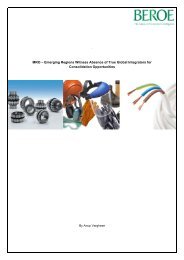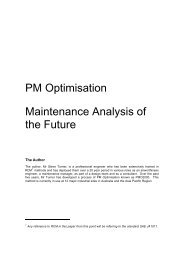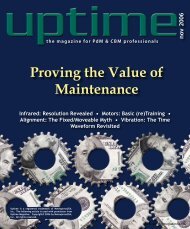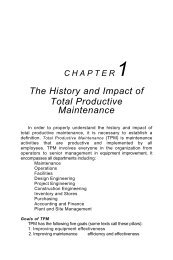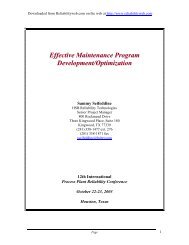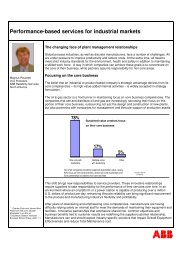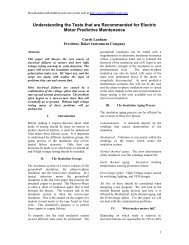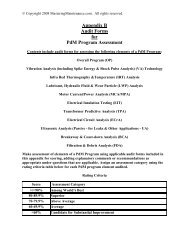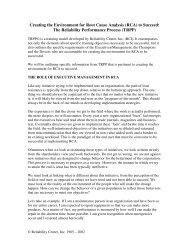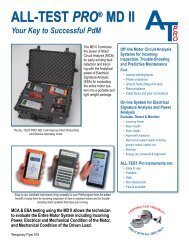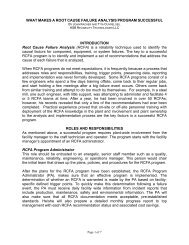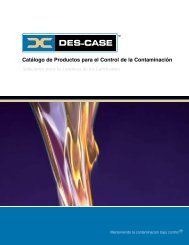Download the 2011 Edition (PDF) - ReliabilityWeb.com
Download the 2011 Edition (PDF) - ReliabilityWeb.com
Download the 2011 Edition (PDF) - ReliabilityWeb.com
Create successful ePaper yourself
Turn your PDF publications into a flip-book with our unique Google optimized e-Paper software.
SUCCESS<br />
Success is something we all strive for but seldom take <strong>the</strong> time to fully<br />
understand. Few think about why things go right because <strong>the</strong>y are so busy<br />
dealing with all of <strong>the</strong> equipment, policy, and processes that are going<br />
wrong.<br />
Many of <strong>the</strong> solutions to our failures lie in our successes. The study of<br />
success, or positive deviance, as it is called, has been used<br />
to solve malnutrition and famine in foreign countries,<br />
political turmoil during wars, and even pump failures in<br />
manufacturing plants.<br />
The Root Cause of Success<br />
(RCS) is simply a process that<br />
includes using your existing root<br />
cause tools to better understand<br />
why your processes and<br />
equipment work reliably.<br />
For example, if you have<br />
a bank of seven pumps<br />
within your facility and<br />
five of <strong>the</strong> seven have never<br />
failed, <strong>the</strong>n ask yourself why.<br />
What is different about <strong>the</strong>se<br />
successful pumps When you look<br />
into <strong>the</strong> success factors for <strong>the</strong> five<br />
reliable pumps, you may discover<br />
any or all of <strong>the</strong> following: proper<br />
alignment, correct initial assembly, proper mounting, correct up and<br />
downstream piping, etc.<br />
These findings can <strong>the</strong>n be leveraged across <strong>the</strong> remaining, less reliable<br />
pumps, increasing <strong>the</strong>ir productivity and your plant up-time.<br />
If your plant has created a culture where it is OK to use failure<br />
investigations to blame or punish folks within <strong>the</strong> facility, <strong>the</strong>n<br />
applying RCS may help get your program back<br />
on track. Using this method, you can focus<br />
on <strong>the</strong> positive, solve problems, reward<br />
good behavior, and change <strong>the</strong> culture.<br />
For <strong>2011</strong>, consider your success. Take <strong>the</strong><br />
time to use your root cause tools to<br />
analyze your good fortune. What<br />
have been your enablers Leverage<br />
<strong>the</strong>m and enjoy your <strong>2011</strong>.<br />
Shon Isenhour CMRP is <strong>the</strong><br />
Director of Education for<br />
GPAllied. His focus is on<br />
providing holistic reliability<br />
improvement and bottom<br />
line performance gains to <strong>the</strong><br />
manufacturing sector. You<br />
can read his blog at www.<br />
reliabilitynow.net or reach him<br />
at sisenhour@gpallied.<strong>com</strong> or<br />
by phone at 843-810-4446.



